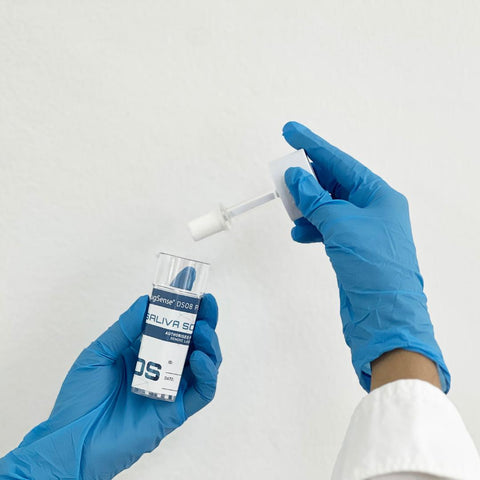Synthetic cannabis, also known as K2 or "spice," may not be making headlines every day, but it's still a growing threat in Australian workplaces.
A 2021 ABC investigation revealed that synthetic cannabis had become the most commonly seized drug in a Darwin prison, overtaking natural cannabis. These trends don’t just exist in correctional facilities—they spill over into high-stress industries like construction, transport, and mining, where drug testing is often seen as a box to tick rather than a comprehensive safety measure.
Here’s what every employer needs to know.
What is synthetic cannabis — and why is it so dangerous?
Synthetic cannabis refers to man-made chemicals designed to mimic the effects of THC, the active compound in marijuana. These chemicals are often sprayed onto dried plant material and sold under names like K2, spice, or herbal incense.
But unlike natural cannabis, synthetic versions are far more dangerous. According to the Alcohol and Drug Foundation, side effects can include:
- Hallucinations
- Severe anxiety or paranoia
- Violent behaviour
- Seizures
- Vomiting
Because the chemical composition can vary wildly from batch to batch, users often have no idea what they're taking. And since it’s often undetectable by standard drug tests, some workers mistakenly believe it’s a "safe" option to avoid detection.
It’s not in the Australian Standard — but it’s still a workplace risk
The Australian Standard AS/NZS 4308 for urine drug testing does not specifically mention synthetic cannabis. For employers relying solely on tests that conform to this standard, that’s a problem.
Synthetic cannabis can still impair judgement, coordination, and behaviour — making it a major safety concern, especially in high-risk industries. Just because a drug isn't listed in the Australian Standard doesn't mean it's not a liability.
Where synthetic cannabis may be flying under the radar
Workplaces with high pressure, shift work, or limited oversight are more likely to see use of synthetic cannabis:
- Construction sites
- Logistics and transport depots
- Warehouses and factories
- Security and corrections roles
In many of these environments, employees might assume that if it can’t be detected, it can’t harm their career. But this is a dangerous misconception that could lead to serious incidents.
Don’t let K2 slip through the cracks: The DrugSense DSO8+ detects synthetic cannabis in saliva
One of the most effective ways to detect and deter K2 use in the workplace is to upgrade your testing equipment.

The DrugSense DSO8+ Saliva Drug Test Kit is a rapid, easy-to-use screening tool that detects:
- Synthetic cannabinoids (including K2/spice)
- Methamphetamines
- Opiates
- THC (natural cannabis)
- Cocaine
- Benzodiazepines
- Amphetamines
- Oxycodone
- Alcohol (0,02%BAC and higher)
It provides on-the-spot saliva results and is ideal for:
- Pre-employment testing
- Random workplace checks
- Post-incident investigations
- Return-to-duty screening
By using advanced test kits like the DS08+, employers can stay one step ahead of emerging threats.
Final thoughts: Don't wait for synthetic cannabis to become a crisis
Synthetic cannabis may not be named in the current Australian Standards, but its risks are real. From increased aggression and hallucinations to unpredictable reactions, K2 has no place in a safe work environment.
Employers who want to future-proof their drug testing policies should be proactive. That means:
- Reviewing your current drug testing program
- Expanding your testing scope to include synthetic cannabinoids
- Using kits like the DrugSense DSO8+ that are designed for today’s drug landscape
Want to learn more about protecting your team from unseen risks? Explore more workplace drug test kits.





